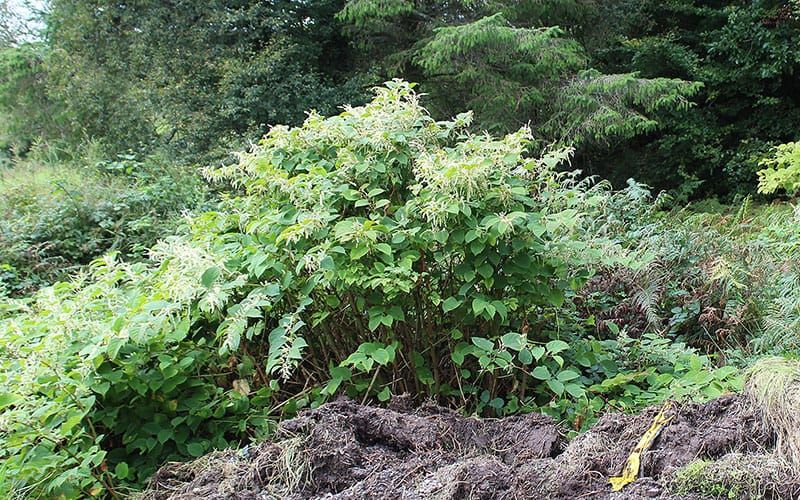Legislation has been enacted by the government to protect home and landowners from Japanese knotweed. Avoid prosecution by learning about Japanese knotweed and UK law here.

Rapid growth causes costly damage
As an invasive species brought to the UK in 1850, Japanese knotweed has no natural enemy to keep it at bay. Growing up to 10cm a day in the summer, it can extend 7 metres in all directions from its root, tearing through pipes and concrete and uprooting our homes. So, who’s responsible for it?
What are your legal responsibilities?
If Japanese knotweed is growing on your land, you are legally responsible for its control. And although having this invasive species present on your land is not illegal, allowing it to spread to neighbouring land is against the law. Japanese knotweed is a “controlled plant”, so, a community protection notice, and even court, awaits you should you cause a nuisance.
Five major UK laws related to Japanese knotweed
There are five major UK laws which deal with Japanese knotweed management, these are:
- The Wildlife and Countryside Act 1981 is often used to convict people who “plant or otherwise cause to grow in the wild any plant which is included in part 2 of schedule 9”. Those found guilty will face fines of £5,000 and/or 6 months in prison, or 2 years and/or an unlimited fine on indictment.
- The Anti-social Behaviour, Crime and Policing Act saw revisions in 2014 to the “ASBO” (anti-social behaviour orders). Now, if you knowingly let Japanese knotweed spread, you may be prosecuted or receive a fixed penalty notice of £100. Convicted land or homeowners may also receive a level 4 fine of £2,500, and businesses could incur fines of around £20,000.
- The Environment Protection Act 1990 sets out guidelines on managing “controlled waste”. And as Japanese knotweed soil and plant material is classed as controlled waste, those who fail to comply with the guidelines (such as not having the right licences) will be prosecuted.
- Waste Management Licensing Regulations 1994 involves correct waste recovery and disposal. That is, it seeks to protect human health and the environment by treating waste as contaminated. When Japanese knotweed is treated with herbicides (glyphosate products) it becomes toxic and thus falls under this regulation.
- Hazardous Waste Regulations 2005 also involves legally disposing of hazardous waste, including herbicidally treated Japanese knotweed. You will be prosecuted if you don't follow these laws!
Japanese knotweed codes of practice
There are so many Japanese knotweed laws in the UK, it’s difficult to know what you can do with the invasive weed. For brave property owners and developers who wish to remove the weed themselves, there is the Property Care Association who have issued the Japanese knotweed Codes of Practice. However, most home and landowners leave the removal of Japanese knotweed to the professionals. It's all too easy to fall on the wrong side of the law!
What to do if you find Japanese knotweed on your land
If you are unlucky enough to have Japanese knotweed growing on your land, it’s time to call in the experts. Not only will Japanese knotweed removal services deal with your infestation legally and cleanly, but most will issue guarantees to prevent you having major problems with your mortgage. Either way, the more you know about Japanese knotweed law (and how to avoid prosecution) the better.
Where do you stand with Japanese knotweed and UK law? Call us today for free and confidential advice on 0330 6781077.